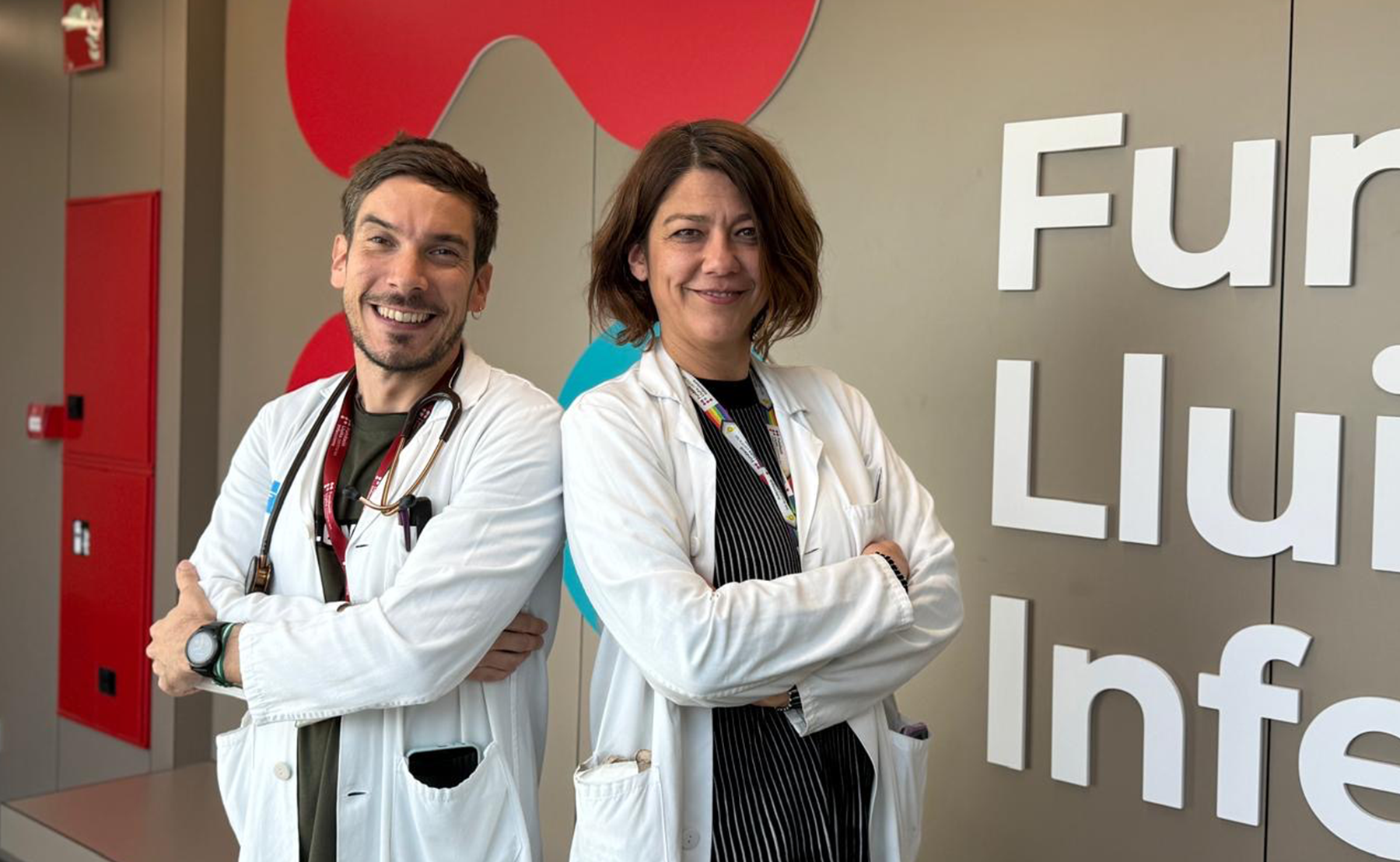What infection has journalist Jordi González suffered from?
29/05/2025
Half a hundred patients with this disease have participated in a pioneering study conducted by researchers from the Germans Trias Hospital and the Fight Infections Foundation. This study has clarified the usefulness of a technique that cleans the blood of inflammatory substances. Despite finding that it did not improve symptoms, the research has provided scientific evidence for patients who were trying it without any certainty.
Researchers from the Fight Infections Foundation and the Germans Trias i Pujol Hospital have concluded that the plasmapheresis technique for treating persistent COVID has not been effective in the patients suffering from this disease who participated in the clinical trial initiated three years ago.
One plausible cause of this disease is that after the acute SARS-CoV-2 infection, inflammatory substances remain in the blood, responsible for persistent symptoms. To verify this, the PAX study, a clinical trial proposing plasma exchange for patients with persistent COVID symptoms, was launched in September 2022. This procedure involved purifying the blood of these patients to eliminate inflammatory substances responsible for the disease or clinical manifestations, as is done with good results in other immunological diseases.
After three years of research, the conclusions of this study—recently published in the journal Nature Communications, which highlighted it among the 50 most relevant in the world in its field—indicate that this technique has not provided any significant improvement in the symptoms that affect the quality of life of these patients.
The director of the persistent COVID program at the hospital, Lourdes Mateu, regrets having found that subjecting patients to this technique has not reduced or eliminated their symptoms. However, Mateu emphasizes that “it will serve as scientific evidence of something that does not work, especially for those patients who, desperately, are trying any therapy against the disease they suffer from.”
In the clinical trial—pioneering and funded by the pharmaceutical company Grifols and promoted by the Fight Against Infections Foundation of the hospital—50 people with persistent COVID participated, divided into two groups. One group underwent plasmapheresis, while the other only received physiological serum. The therapeutic plasma exchange procedure consisted of collecting plasma, separating cells and particles, and returning the rest of the blood components to the patient.
Assignment to one of these groups was done completely randomly, without the participant or the researcher knowing which group they belonged to. Six consecutive sessions were conducted—either plasma exchange or serum administration—and then clinical and analytical follow-up was carried out for 90 days after completing the treatment. In this regard, among other variables, possible changes in the general state of the patients and their symptoms, such as fatigue, neurocognitive performance, anxiety, or depression, were monitored.
Almost simultaneously with the conclusion of this trial, the Fight Infections Foundation launched another phase II study to evaluate the safety and efficacy of a drug as a treatment for adult patients with persistent COVID.
This drug is plitidepsin, an antitumor that also has anti-inflammatory effects developed by the pharmaceutical company PharmaMar to treat various viruses, including SARS-CoV-2, MERS, Zika, respiratory syncytial virus, hepatitis C virus, and herpes virus, among others.
The study, named ‘Thalassa,’ is conducted in collaboration with IrsiCaixa and has been underway since February with nearly a hundred patients from the Germans Trias Hospital. As in the case of the plasmapheresis trial, Lourdes Mateu reiterates that the goal of this new trial is to provide scientific evidence “that allows better understanding of this condition and offers a specific therapeutic option to patients who currently do not have effective treatments.”
The reason why some patients persist with these symptoms remains unknown, but various studies being conducted worldwide support different hypotheses such as viral persistence, inflammation, autoimmunity, microbiota alterations, or small blood vessel changes.
Currently, the treatment of patients with persistent COVID focuses on alleviating symptoms and improving their quality of life; however, these interventions do not address or resolve the underlying cause of the disease.
29/05/2025
13/05/2025
23/04/2025

Share